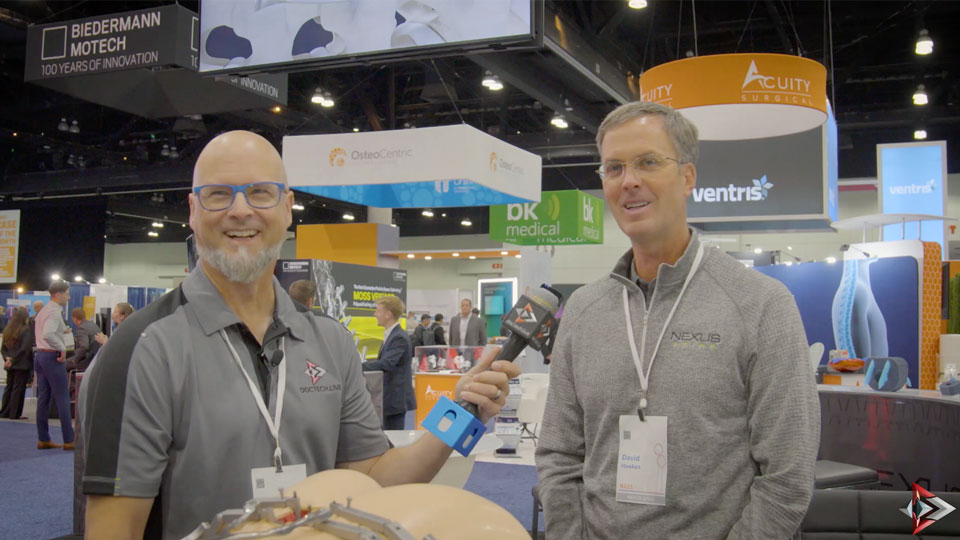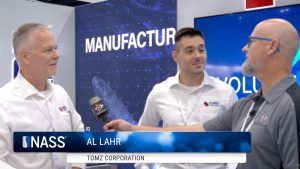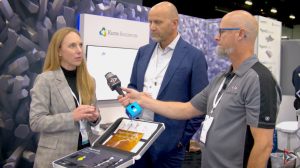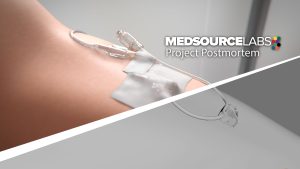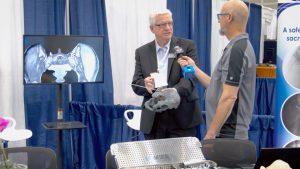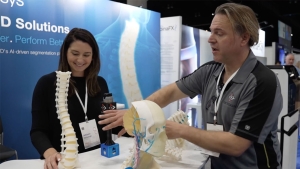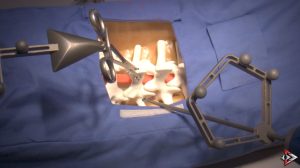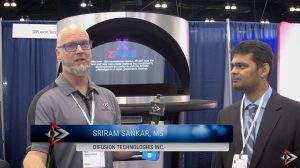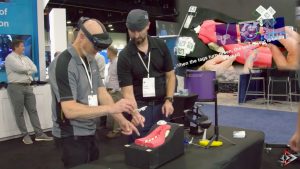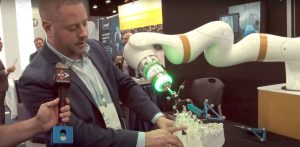The North American Spine Society (NASS) 2023 conference held in Los Angeles, California, brought together medical device manufacturers, surgeons, medical marketers, and healthcare professionals to discuss the latest advancements in the field of spine care. Among the innovative companies at the event, Nexus Spine stood out with its groundbreaking approach to spinal implants. Doctech.live, a Med-Tech Innovation Report and journalist company sponsored by Ghost Productions Inc., had the privilege of interviewing David Hawkes, the President of Nexus Spine, to learn more about their pioneering work.
Nexus Spine: Revolutionizing Spinal Implants
Nexus Spine is a company dedicated to developing industry-leading spinal implants by leveraging their expertise in compliant mechanism engineering. Their innovative and evidence-based approach is transforming surgical technologies by focusing on improving clinical outcomes while simplifying the implantation process. Their streamlined spinal fusion systems are particularly well-suited for ambulatory surgery centers, reducing implant bulk, surgery time, and hospital handling. Nexus Spine is wholly owned by Crocker Ventures, a privately-held life science, healthcare, and technology investment firm.
The journey of Nexus Spine dates back to the 1990s when the team began developing spinal implants. Their approach has always been evidence-based, with two primary aims: improving clinical outcomes and making the implants easier to use.
The Key to Nexus Spine’s Success
During the interview with Doctech.live, David Hawkes shed light on the innovative engineering that sets Nexus Spine apart from the competition. He explained that human tissues get motion by bending rather than sliding, and the spinal disc is a flexible material. Nexus Spine utilizes a cutting-edge field of engineering called compliant mechanisms, which enables motion by bending metal instead of sliding it.
One of their groundbreaking achievements is creating porous titanium that mimics the flexibility of spinal cancellous bone. By precisely matching the stiffness of spinal cancellous bone, Nexus Spine’s implants promote rapid bony formation. Unlike competitive devices that are too stiff and lead to fibrous tissue formation, Nexus Spine’s implants offer quicker stability with bone formation in a matter of weeks.
This technology isn’t limited to interbody spacers; Nexus Spine’s pedicle screw system also utilizes flexing titanium, reducing volume, increasing strength, and minimizing the number of required instruments.
The Role of 3D Printing
3D printing plays a crucial role in Nexus Spine’s approach. The company employs 3D printing to create rods with built-in flex, promoting the micro-motion necessary for osteogenesis, a process vital for bone growth.
Achieving this level of innovation required specialized knowledge. Nexus Spine’s engineering team, equipped with PhDs in the field of compliant mechanisms, calculates stress at a microscopic level to keep every finite element within its elastic limit. This expertise allows them to decouple strength and stiffness, maintaining high strength while reducing stiffness.
Regulatory Milestones
Nexus Spine has achieved significant milestones in the regulatory space. With 13 years in business and devices implanted for the past eight years, they have received 510(k) clearance for 13 products. Thousands of surgeries have been performed using their devices, demonstrating improved outcomes and cost reduction.
Founding and Mission
The company’s co-founder, Gary Crocker, has a successful history in medical device companies and seeks to leave a lasting impact on healthcare. David Hawkes joined forces with him, and they identified opportunities to make a difference in the spine care industry by addressing the shortcomings of existing hardware.
Challenges in Marketing
Marketing Nexus Spine’s innovative products presents unique challenges. The company aims to cater to various stakeholders, including hospitals, surgeons, representatives, and patients. Communicating their value proposition effectively without appearing similar to other products in the market is a complex task. They are working to craft a simple, distinct message that resonates with all parties.
Future Outlook
Having tackled major revenue segments like lumbar fusion, lumbar interbody, and cervical motion preservation, Nexus Spine plans to expand its focus to smaller revenue segments with persistent hardware shortcomings. Their goal is to continue improving care while reducing costs.
Supporting the Spine Community
Nexus Spine’s presence at NASS 2023 exemplifies their commitment to supporting the spine community. While their primary objective is not generating sales leads, they aim to be active contributors to the industry.
Conclusion
Nexus Spine’s innovative approach to spinal implants, rooted in compliant mechanism engineering and 3D printing, has the potential to revolutionize spine care. With a strong commitment to improving clinical outcomes and reducing costs, Nexus Spine is poised to leave a lasting impact on the field of spine surgery. As they continue to attend industry events and collaborate with stakeholders, we can expect to see further advancements in their groundbreaking technology.

